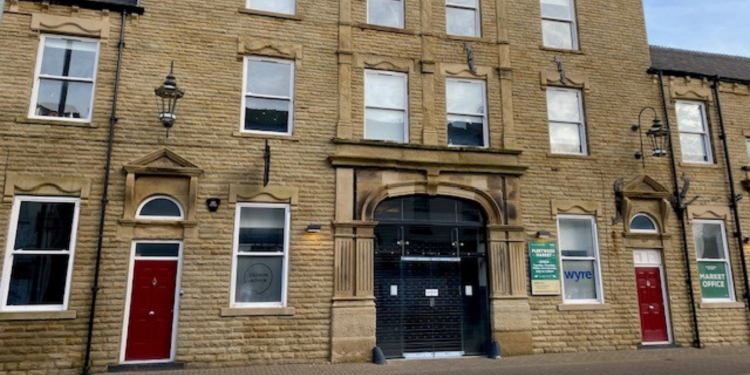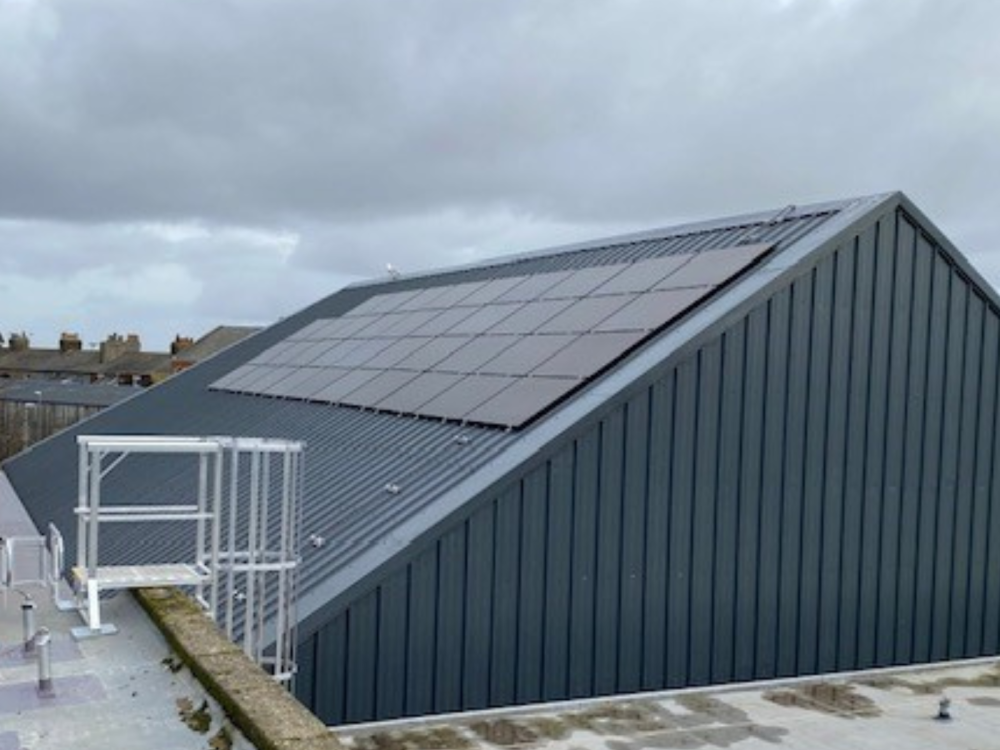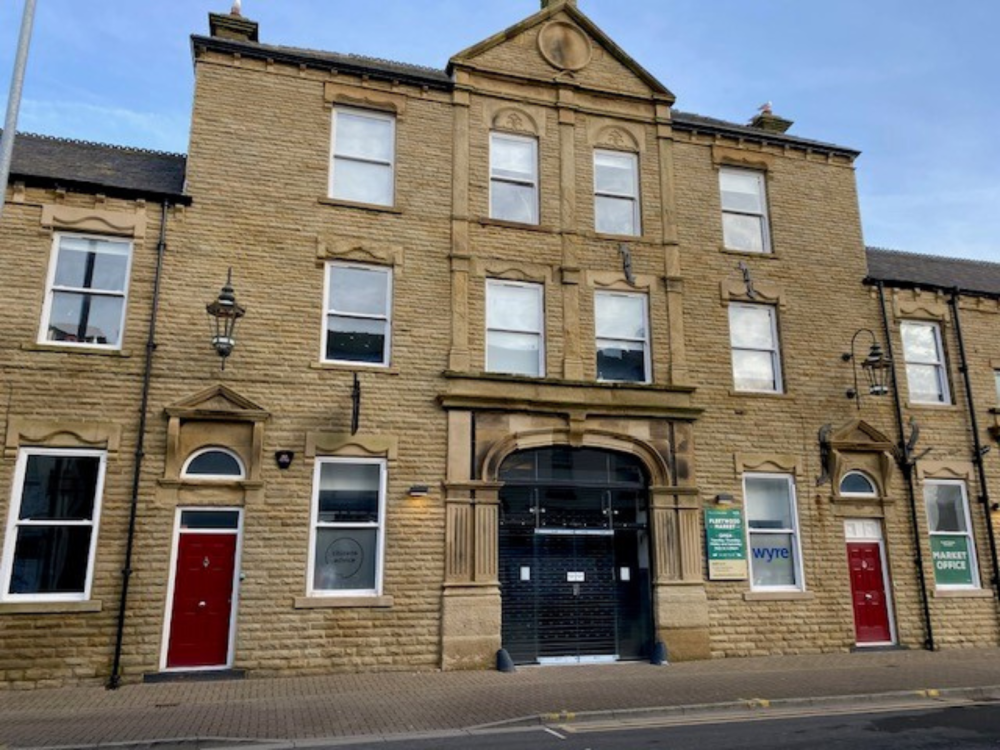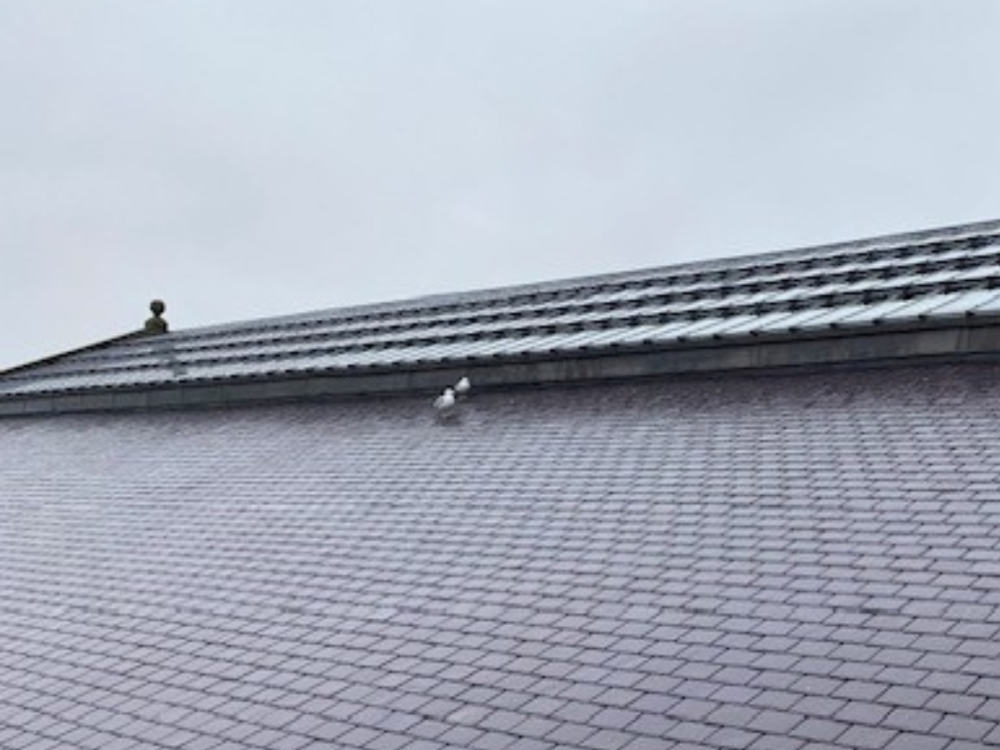Decarbonisation works at popular Lancashire market finally take flight

How nesting gulls stalled project progress at Fleetwood Market
We are proud to announce the completion of a Salix-funded decarbonisation project at Lancashire's popular Fleetwood Market. The project is celebrating this delayed milestone after works were pushed back for months due to nesting gulls.
Fleetwood Market is a popular coastal market in Fleetwood that is home to more than 150 stalls and which is open four days a week, all-year round.
Built in 1840, the council-owned Victorian building that hosts the market has a rich history embedded in community-centric trade, craft and employment.
Councillor Le Marinel, planning policy and economic development portfolio holder at Wyre Council said: “What sets Fleetwood Market apart is its strong sense of community.
“Locals and tourists alike gather here not only to shop, but also to connect with each other.”
What sets Fleetwood Market apart is its strong sense of community.
Locals and tourists alike gather here not only to shop, but also to connect with each other.
Wyre Council, who own the building, have the ambition to achieve net zero in line with UK government 2050 aims.
To address this, they recognised that building efficiency was a top priority, and Fleetwood Market was put forward as a suitable candidate for decarbonisation works to support their aims.
The project involved replacing an end-of-life fossil fuel boiler with a low-emission air source heat pump, plus accompanying energy efficiency measures and the installation of solar PV to generate renewable energy for the site.
The £1,102,829 project was awarded £999,468 in funding under Phase 3a of the Public Sector Decarbonisation Scheme. Funding was delivered by Salix on behalf of the Department for Energy Security and Net Zero.
However, the project ran into a hurdle when the team found nesting gulls on the roof of the building where they planned to install solar panels.
Pressing pause
Gulls are common across the UK, with six species known to breed throughout the country.
Given its proximity to the coast, the presence of gulls around the Fleetwood Market building is well-known and widely accepted amongst both the patrons and traders.
What was not anticipated, however, was the presence of their nests in the roof of the building.
The breeding season for gulls in the UK runs from late March through until September, with nest building from early May onwards.
The UK law protects the nests and the eggs of all wild bird species, including gulls, with serious consequences for anyone who disturbs or removes a nest during the breeding season.
As a result, this element of the project was required to pause during nesting season, and also experienced further delays due to the adverse weather.
The storm season, which begins in September, saw seven named storms batter the UK before the end of 2023, and some had major impacts on the Blackpool community.
Project upgrades also had to balance the requirements of the traders because it meant the roof had to be stripped of slates for the solar panels to be installed. This involved a lot of organisation and pre-planning especially as traders are the lifeblood of the market.
To complete the task, dedicated workers braved freezing, snowy conditions experienced between storms during the winter months.
Salix client support officer Hira Raashid said: “The project is a true example of the importance of patience and perseverance in the face of unforeseen circumstances and shows how challenges can be overcome to achieve success.”
The project is a true example of the importance of patience and perseverance in the face of unforeseen circumstances and shows how challenges can be overcome to achieve success.
Taking flight
Despite the challenges faced, the team at Wyre Council are proud to announce that the project is now complete, albeit nearly 12 months later than anticipated.
The refurbishment of Fleetwood Market and other improvements in Fleetwood’s High Street Heritage Action Zone has totalled more than £5 million, which the council says will help ensure the market remains a key attraction for tourists and the community.
The portion of the refurbishments funded by the Public Sector Decarbonisation Scheme project were accompanied by further works funded through the UK Shared Prosperity Fund, Historic England, and the council.
Capital projects manager at Wyre Council Rob Mayo said: “Fleetwood Market has undergone a major refurbishment from 2020, which has included the installation of a sustainable heating system using air-source heat pumps, with electricity provided by solar panels mounted on the pitched roofs, which will provide a comfortable temperature for shoppers.
“The original slate-pitched roofs have been renewed together with new insulation, and double-glazed doors and windows to boost energy efficiency and warmth.
“Traditional cast iron gutters and rainwater pipes have also been installed to replace defective uPVC gutters and downpipes.
“The market interior has been redecorated to create a bright and attractive space, with two shop fronts opposite the market also renovated using traditional design and materials to improve the immediate surroundings.”
The works at Fleetwood Market provide an excellent example of how carbon-saving projects funded largely through the Public Sector Decarbonisation Scheme can bring historic community buildings into the 21st century and improve the experience for everyone who uses the space in the process.
Fleetwood Market has undergone a major refurbishment from 2020, which has included the installation of a sustainable heating system using air-source heat pumps, with electricity provided by solar panels mounted on the pitched roofs, which will provide a comfortable temperature for shoppers.
The original slate-pitched roofs have been renewed together with new insulation, and double-glazed doors and windows to boost energy efficiency and warmth.
Traditional cast iron gutters and rainwater pipes have also been installed to replace defective uPVC gutters and downpipes.
The market interior has been redecorated to create a bright and attractive space, with two shop fronts opposite the market also renovated using traditional design and materials to improve the immediate surroundings.







